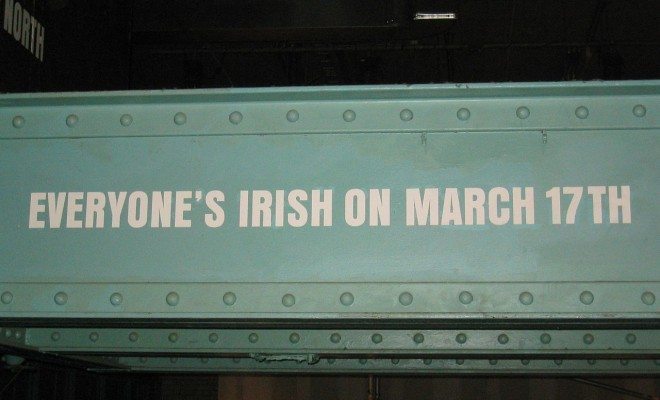
Blogs
Why is St. Paddy’s Day Such a Drunken Mess?
St. Patrick’s Day is next week, but the celebrations are already beginning in a lot of places around the United States. Beginning in revelry, that is, and ending in arrests. At the University of Massachusetts, Amherst last weekend, 73 people were arrested at a premature “Blarney Blowout.” Four officers were injured in the process of trying to shut down the party, which consisted of about 4,000 people. There were drunken fights, people throwing broken bottles, sexual assaults, and property damage.
UMass Amherst isn’t the only university that traditionally has a St. Paddy’s Day-inspired problem. Penn State University has an informal State Paddy’s Day each year, and it’s much in the same vein. It’s usually around the first weekend in March, and has been an annual celebration since 2007. It’s gotten so bad that the University has started to offer money to restaurants and bars to not open, or at least to not sell booze.
Indiana University of Pennsylvania is having problems this year as well. Neither the University nor the Police have yet released how many students were arrested, but a University spokesman assured the press that the violators will be punished appropriately.
For years, St. Paddy’s day has been associated with drunken revelry, especially throughout the United States. But how and why? After all, it is named after Saint Patrick, and was originally a Catholic feast day. How has that turned into this?

And how many people actually know the real history of the holiday?
It is believed that St. Patrick was originally a slave taken from Britain to Ireland. He eventually escaped and became a cleric, followed by a Bishop. March 17 is his feast day and is thought to be the day of his death. Many St. Patrick’s day symbols also have religious significance. For example, the shamrock was used it to illustrate the idea of the Father, Son, and Holy Ghost in Catholic theology. Others have evolved over time. For example, the color green didn’t become associated with St. Patrick’s Day until the 19th century. Traditionally, St. Patrick’s color was blue. And St. Patrick’s Day parades were never really a thing in Ireland, the first one of those was actually in Boston.
Of course most of the people celebrating St. Paddy’s day wouldn’t be able to tell you that, although not for lack of trying. Here are some drunk people trying to answer St. Paddy’s day questions. They do a fabulous job.
